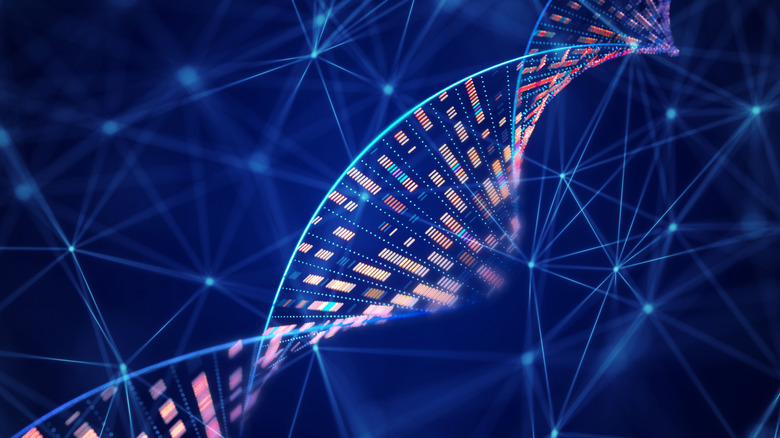The Pros & Cons Of Cloning
As far as anyone really knows, scientists have yet to clone a human being, and there are no federal laws against it in the United State. However, seven states prohibit it altogether, and 10 states only allow it for biomedical research. While more than 30 countries formally ban cloning for reproductive purposes, China, England, Israel, Singapore, and Sweden do allow cloning for research, but disallow reproductive cloning.
Cloning definition
The definition of a clone as explained by Encyclopaedia Britannica is a cell or living thing, an organism, that is "genetically identical to the original cell or organism" from which it comes. The word itself comes from the ancient Greek word "klon," which means twig. Single-cell organisms like some yeasts and bacteria naturally reproduce clones of parent cells via budding or binary fission. Individual body cells within plants and animals are clones that occur during a cell-reproduction process called mitosis.
Cloned animals
In 2017, scientists in Shanghai succeeded in cloning two genetically identical long-tailed macaques, small brown and black monkeys with body lengths of 16 to 28 inches. The last successful cloning of a primate was in 1998, but scientists have also cloned about 20 different types of animals including dogs, pigs, frogs, mice, cows, and rabbits since the first cloned animal in 1996.
The first cloned animal: Dolly the sheep
The first successful animal cloning occurred over 22 years ago, after a Scottish Blackface sheep surrogate mother gave birth to Dolly on July 5, 1996, at the Roslin Institute, part of the University of Edinburgh. Cloned from a 6-year-old Dorset sheep, scientists analyzed her DNA at her first birthday and discovered that the telomeres at the end of her DNA strands (think eraser on a pencil head) were shorter that they should be for her age. As animals and humans age, these telomeres become shorter. The average age for sheep runs between six to 12 years. Dolly died when she was 6 years old, and though she had shortened telomeres, she lived an average life and produced multiple offspring through natural methods, but she also developed diseases in her later years.
Human cloning pros and cons
There are a number of pros when it comes to human cloning. Infertile people or same-sex couples could have children made from cloned cells. A clone, like in the movie, "The Island," could be a source for transplant organs or tissue. (There are ethical issues that arise from this, however.) Cell cloning could assist scientists in gene editing and research. After editing or removing bad genes, cloning could lead engineered humans for specific traits. Cloning could enhance and advance human development.
That said, the cons of human cloning raise moral, ethical, and safety issues. The negatives of human cloning including the making of designer babies, and it could be a violation of the clone's individual human rights. Cloning raises the question of a moral or human right to an exclusive identity, and human cloning could produce psychological distress for the clone and society. Scientifically, cellular degradation occurs when too many clones are made from embryos.
Effects of cloning
While the purpose of cloning is to create an exact replica — cloning a human that appears identical to the original — it raises the questions as to whether the cloned human is an individual separate from the original and is due the same rights as any other human. Human cloning research and techniques could subject the clone to unacceptable risks such as a shortened life, bad health, or other unknown problems. In the end, legalizing cloning on a wide-scale basis could lead to a disrespect for human life and the individual worth of a person, which might ultimately diminish all humans in the end.
References
- CNN: Monkey See, Monkey 2: Scientists Clone Monkeys Using Technique That Created Dolly the Sheep
- Encyclopaedia Britannica: Macaque
- The University of Edinburgh: The Life of Dolly
- North Carolina State Extension: Sheep Facts
- Georgetown University: Cloning Human Beings
- Johns Hopkins University: Ask an Expert: How Close Are We to Cloning Humans?
- The New Atlantis: Appendix: State Laws on Human Cloning
- Encyclopaedia Britannica: Clone
